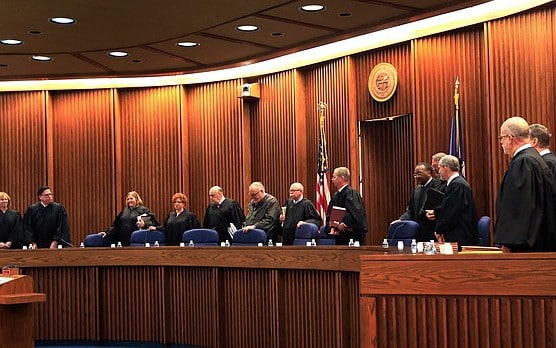Last week, in Hodes & Nauser v. Schmidt, a divided Kansas appeals court voted 7-7 to affirm a lower court’s decision to block a controversial Kansas law that essentially criminalized second trimester abortions for women in Kansas.
The Kansas law was passed by the Kansas state legislature in 2015, and they called it the “Kansas Unborn Child Protection from Dismemberment Abortion Act.” With few exceptions, the law banned “dilation and evacuation” or “D&E” abortions, the primary method for second-trimester abortions in the U.S.
The Kansas appeals court held that that sections 1 and 2 of the Kansas Constitution Bill of Rights have “much the same effect” as the Due Process and Equal Protection Clauses of the United States Constitution. A right to abortion has been recognized under the Due Process Clause of the Fourteenth Amendment to the United States Constitution for more than 40 years under Roe v. Wade. Thus, the court held that the Kansas Constitution also protects the same right.
The dissenting judges argued that “courts must do their best to ascertain the intention of the delegates at the Wyandotte Constitutional Convention who drafted our state constitution and the Kansas territorial voters who ratified the instrument in 1859.” Rejecting this premise, the court held: “The rights of Kansas women in 2016 are not limited to those specifically intended by the men who drafted our state’s constitution in 1859.”

